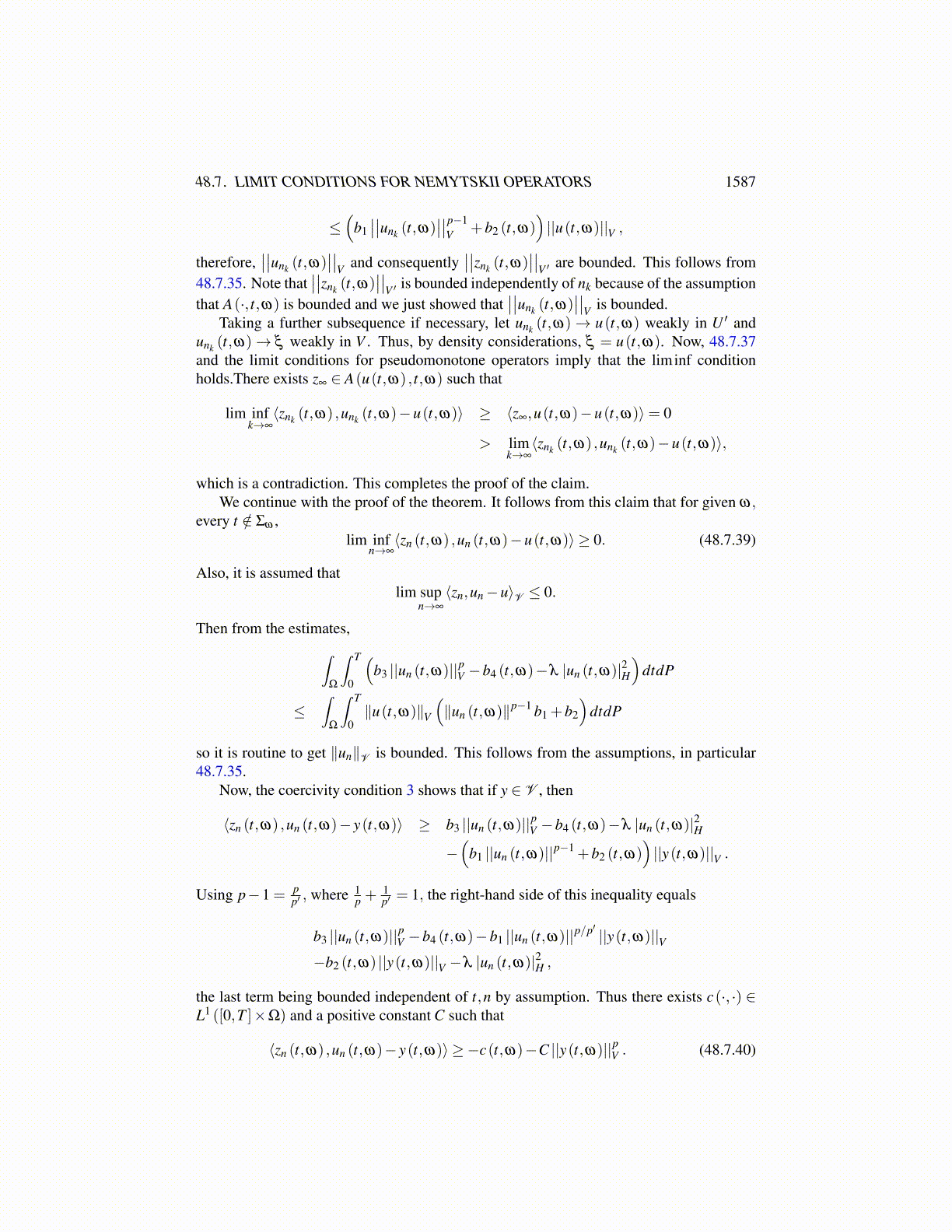
48.7. LIMIT CONDITIONS FOR NEMYTSKII OPERATORS 1587
In what follows, P will be the σ algebra of progressively measurable sets. Thus thereis a filtration {Ft} and a set S is P measurable means that
(t,ω)→X[0,t]×Ω (t,ω)XS (t,ω) is a B ([0, t])×Ft
meaurable function.We assume the following conditions on A.
1. A(·, t,ω) : V →P (V ′) is pseudomonotone and bounded: A(u, t,ω) is a closed con-vex set for each (t,ω), u→ A(u, t,ω) is bounded, and if un→ u weakly and
lim supn→∞
⟨A(un, t,ω) ,un−u⟩ ≤ 0
then for any v ∈V,
lim infn→∞⟨A(un, t,ω) ,un− v⟩ ≥ ⟨z(v) ,u− v⟩ some z(v) ∈ A(u, t,ω)
2. A(·, t,ω) satisfies the estimates: There exists b1 ≥ 0 and b2 ≥ 0, such that
||z||V ′ ≤ b1 ||u||p−1V +b2 (t,ω) , (48.7.33)
for all z ∈ A(u, t,ω) , b2 (·, ·) ∈ Lp′ ([0,T ]×Ω).
3. There exist a positive constant b3 and a nonnegative function b4 that is B ([0,T ])×FT measurable and also b4 (·, ·) ∈ L1 ([0,T ]×Ω), such that for some λ ≥ 0,
infz∈A(u,t,ω)
⟨z,u⟩ ≥ b3 ||u||pV −b4 (t,ω)−λ |u|2H . (48.7.34)
4. The mapping (t,ω)→ A(u(t,ω) , t,ω) is measurable in the sense that
(t,ω)→ A(u(t,ω) , t,ω)
is a measurable multifunction with respect to P whenever (t,ω)→ u(t,ω) is inV ≡ V p ≡ Lp ([0,T ]×Ω;V,P) .
5. For u ∈ Vp, we define Â(u) ∈P(V ′p)
as follows: z ∈ Â(u) means that z(t,ω) ∈A(u(t,ω) , t,ω) a.e. (t,ω). Thus this is the Nemytskii operator for A(·, t,ω).
In the following theorem and in arguments which take place below, U will be a Hilbertspace dense in V with the inclusion map compact. Such a Hilbert space always exists andis important in probability theory where (i,U,V ) is an abstract Wiener space. However,in most applications from partial differential equations, it suffices to take U as a suitableSobolev space. Also for S a set in [0,T ]×Ω,Sω will denote {t : (t,ω) ∈ S} .